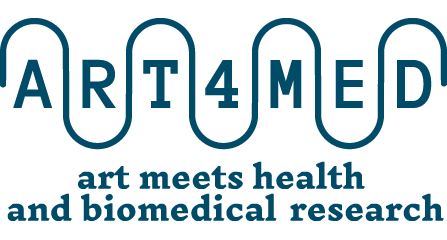ABOUT
Medical equipment has played a key role in many scientific revolutions that have extended our means of observation beyond the five human senses. Nevertheless, the current supply chain limits access, creativity and customization. Citizen science, hacker/maker movements, DIY culture activists and investigative artists have addressed this problem by sharing open designs of small scientific instruments and innovative equipment. These efforts are in line with the larger movement of frugal science, which advocates the development and distribution of affordable and accessible scientific tools to tackle Global Health issues.
Questions such as “Do I own my body and all it is made of and produces?” may seem to have straightforward answers, but they cannot be taken for granted in the context of pharmacological treatments, where health and genetic data is collected, stored and commercialized by corporations. These issues of control, ownership and governance of one’s own body, all of which have serious individual repercussions, especially in the case of marginalized bodies, can be effectively raised through artistic practices.
Contemporary investigative artists are also engaging discussions around policies of access to healthcare, global issues related to development aid through training and empowerment (from the socially marginalized to the ethnically racialized minorities of both heavily industrialized and less industrialized countries), the claim of corporal autonomy, “xenopolitical” subversion and the desacralization of science and academic medicine. Artists remind us that subversion, or at least established points of resistance, is a precondition for citizens to take control of the challenges posed by science.
Medical professionals, living labs and open science communities appreciate these creative mindsets, as well as their unique approaches to discussing ethical values and equity in access to healthcare. But these fragile collaborations still have difficulty finding dedicated frameworks for fruitful production.
The ART4MED project intends to foster these encounters between art practices and biomedical health research—in a fast-changing societal environment, under the influence of big data, material and technical innovation. It addresses the exclusion of marginalized groups from healthcare, global migrations, collapses in environmental health and the need for radical care in these pandemic times.
In order to tackle these urgent issues, we propose to form a consortium: 5 partners from 5 EU countries will unite around their common interest to experiment and disseminate collaborations between hands-on medical humanities and investigative art methodologies. In 2021 and 2022, the consortium will propose 5 residencies, 5 symposiums, talks, co-creative methodology workshops, online collaborations, hands-on sessions, exhibitions, and a final publication and festival in Paris.
ART4MED aims to:
- Build-up interdisciplinary transnational cooperation between artists and the health sector in order to support and produce exploratory art projects that promote access to healthcare;
- Open new creative fields of experimentation for artists to challenge the current status of science and healthcare;
- Enable cross-fertilization and sharing of knowledge, technologies, skills and experiences among artists, researchers and open/citizen science communities, and provide conditions for fruitful creative exchanges. By collaboratively co-designing methodologies and discussing their implementation in local contexts, we can learn from each other, identify best practices and opportunities to grow our own communities with long-lasting bonds;
- Produce open and transferable resources to better understand co-creative processes between art, science and technology;
- Raise audience awareness of the role of artists in opening disruptive paths that significantly tackle societal and technological challenges in access to healthcare, beyond the scope of existing art-science peer communities.
The European Commission’s support for the production of this publication does not constitute an endorsement of the contents, which reflect the views only of the authors, and the Commission cannot be held responsible for any use which may be made of the information contained therein.

